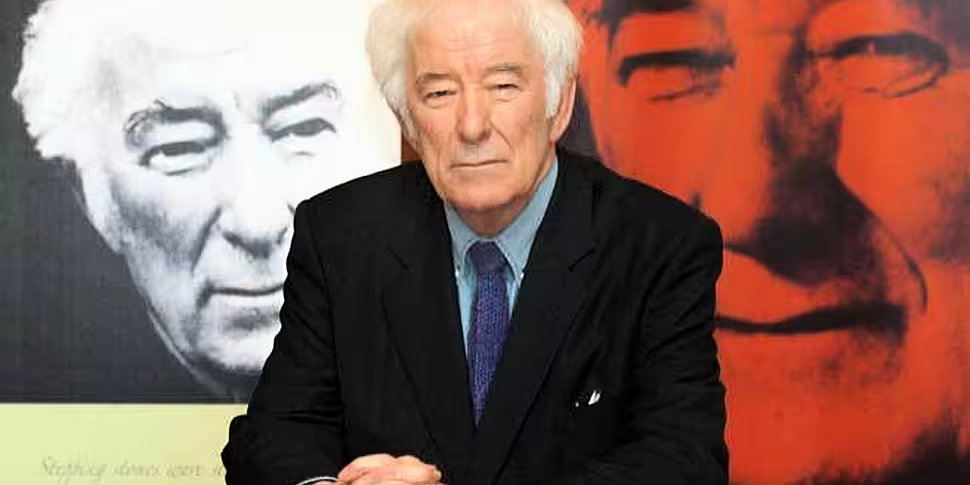Poet Seamus Heaney has died at the age of 74 after long illness.
Heaney had been cancelling appearances recently, because of ill health.
The eldest of nine children from Co. Derry, he was a farmer's son, but was raised by his uncle after the early death of his own parents.

He was awarded a distinguished Fellowship by Griffith College last year
Much of Heaney's work was grounded in his rural upbringing.
He was educated in Derry and Belfast, later teaching in Belfast. He eventually moved south of the border and settled in the Republic. Heaney also spent regular annual period teaching in America, and at Oxford University.
He described his move from his homeplace of Mossbawn as a removal from "the earth of farm labour to the heaven of education." It is not surprising, then, that this move has turned out to be a recurrent theme in his work, from "Digging", the first poem in his first book, through the much more orchestrated treatment of it in "Alphabets"(The Haw Lantern, 1987), to its most recent appearance in "A Sofa in the Forties" which was published in The Spirit Level.

He gave literary papers to the National Library back in 2011
Heaney's poems first came to public attention in the mid-1960s when he was active as one of a group of poets who were subsequently recognized as constituting something of a "Northern School" within Irish writing.
He was influenced by the fact that he lived in a society deeply divided along religious and political lines, something that is crediting with darkening his work.
These concerns also lie behind Heaney's involvement for a decade and a half with Field Day, a theatre company founded in 1980 by the playwright Brian Friel and the actor Stephen Real.

He supported Dunnes Stores workers in their anti-apartheid movement back in 1985
He also served for five years on The Arts Council in the Republic of Ireland (1973-1978) and over the years has acted as judge and lecturer for countless poetry competitions and literary conferences, establishing a special relationship with the annual W.B. Yeats International Summer School in Sligo.
He has been the recipient of several honorary degrees; he is a member of Aosdana, the Irish academy of artists and writers, and a Foreign Member of The American Academy of Arts and Letters. In 1996, subsequent to his winning the Nobel Prize in Literature in 1995, he was made a Commandeur de L'Ordre des Arts et Lettres by the French Ministry of Culture.
He is survived by his wife Marie Devlin and their three grown-up children.
See his life & career In Pictures here
Mr. Heaney addressed the Irish Human Rights Commission back in 2009. The following morning, he spoke Newstalk Breakfast about workers rights.
He spoke about his work and outlook back in 2010.
Watch him read his poem celebrating when Ireland 'took its place among the nations of the world' in 2009.
Heaney's published work
- 1966: Death of a Naturalist, Faber & Faber
- 1969: Door into the Dark, Faber & Faber
- 1972: Wintering Out, Faber & Faber
- 1975: Stations, Ulsterman
- 1975: North, Faber & Faber
- 1979: Field Work, Faber & Faber
- 1984: Station Island, Faber & Faber
- 1987: The Haw Lantern, Faber & Faber
- 1991: Seeing Things, Faber & Faber
- 1996: The Spirit Level, Faber & Faber
- 2001: Electric Light, Faber & Faber
- 2006: District and Circle, Faber & Faber
- 2010: Human Chain, Faber & Faber









